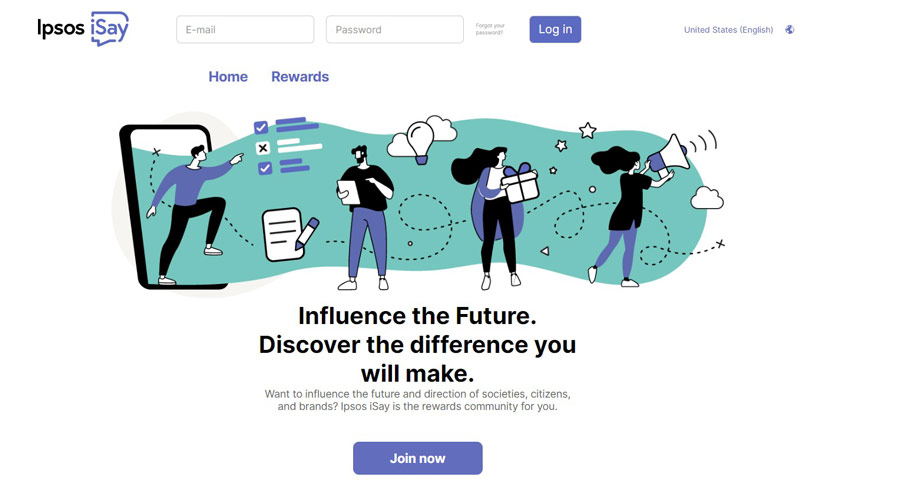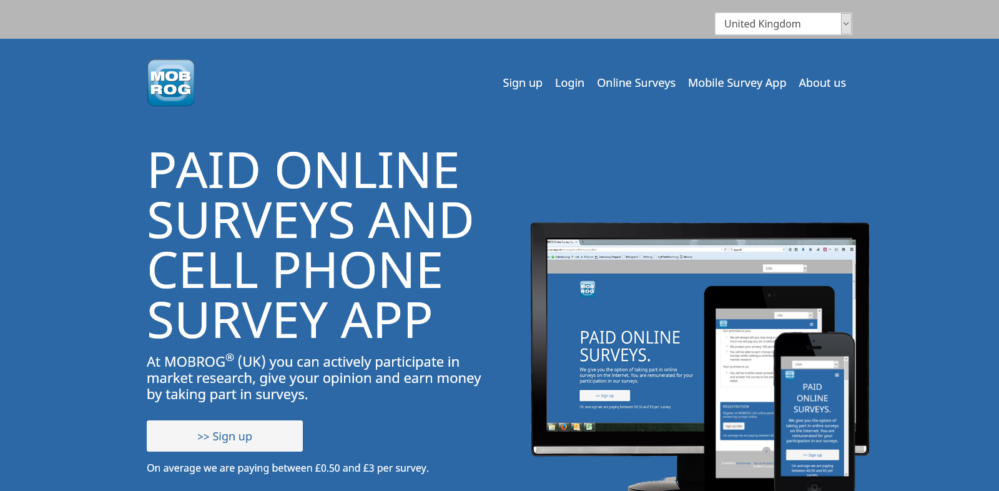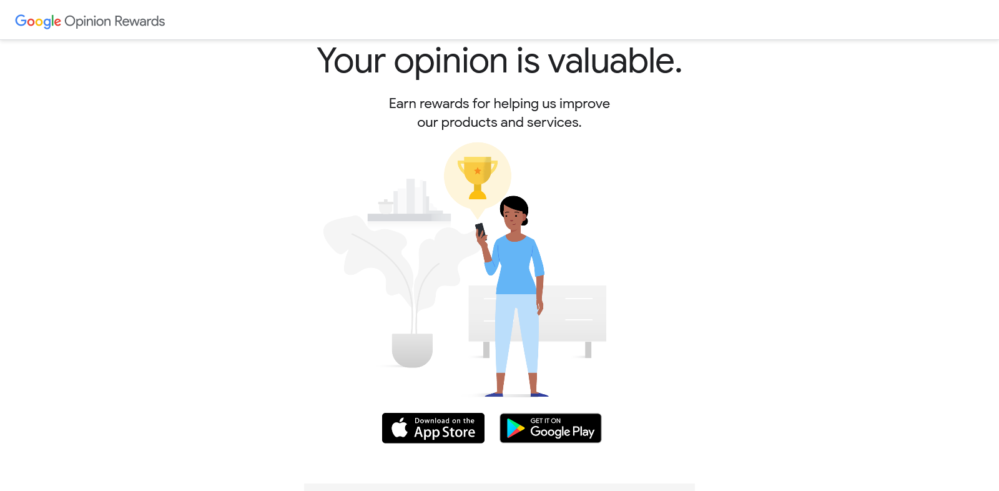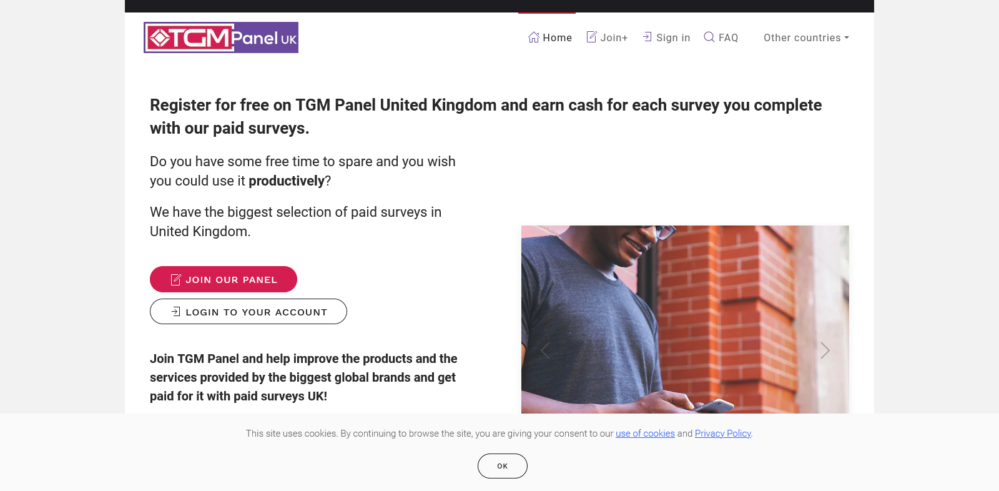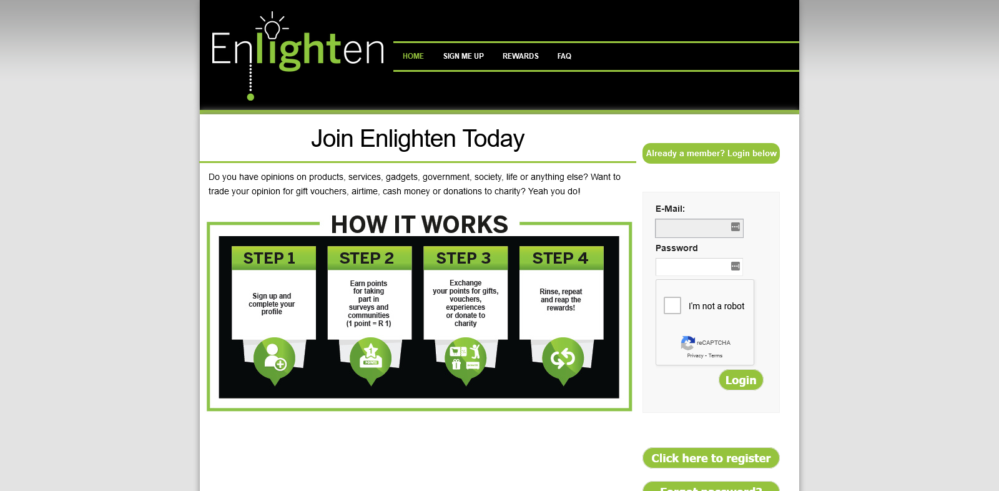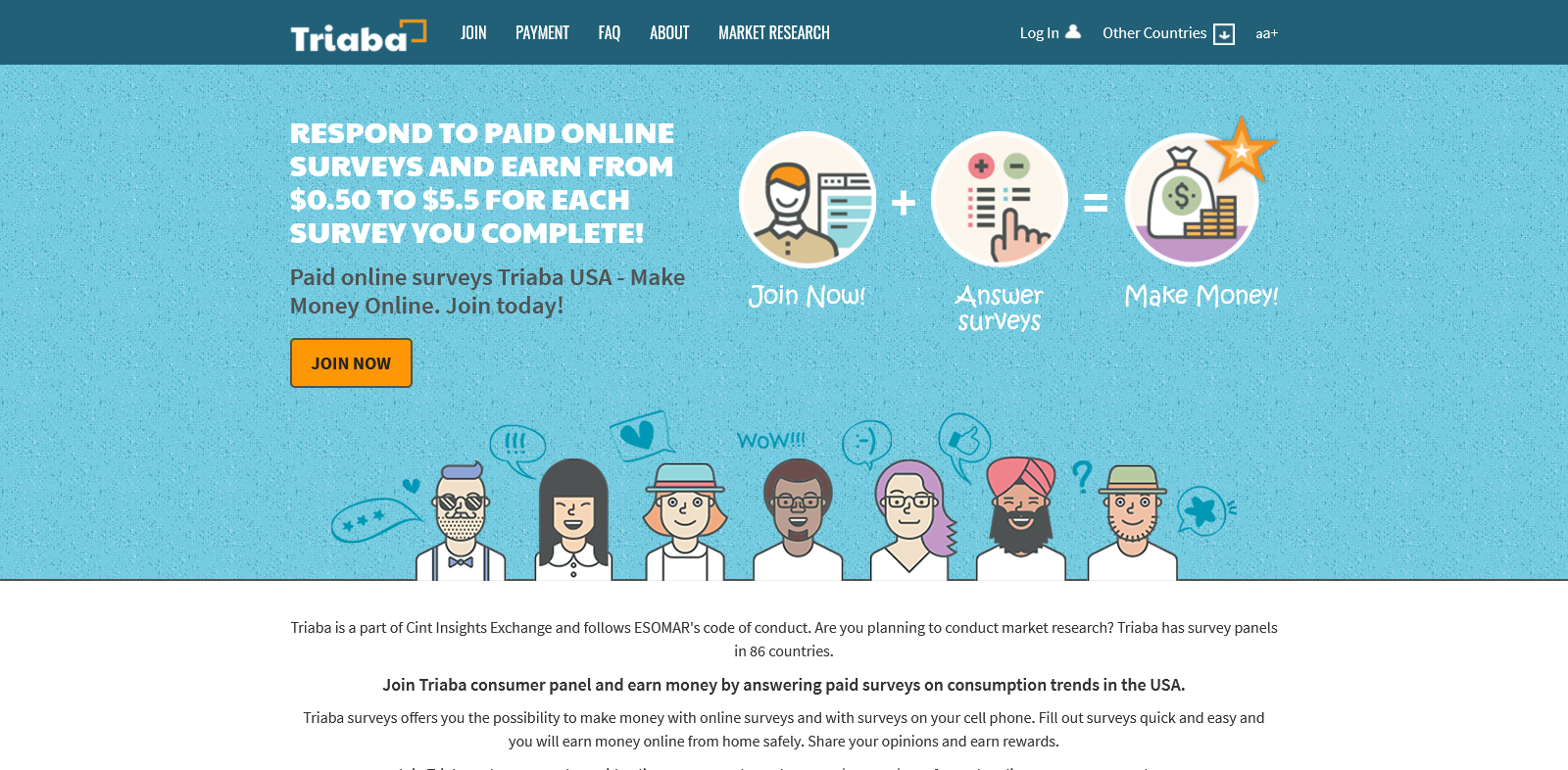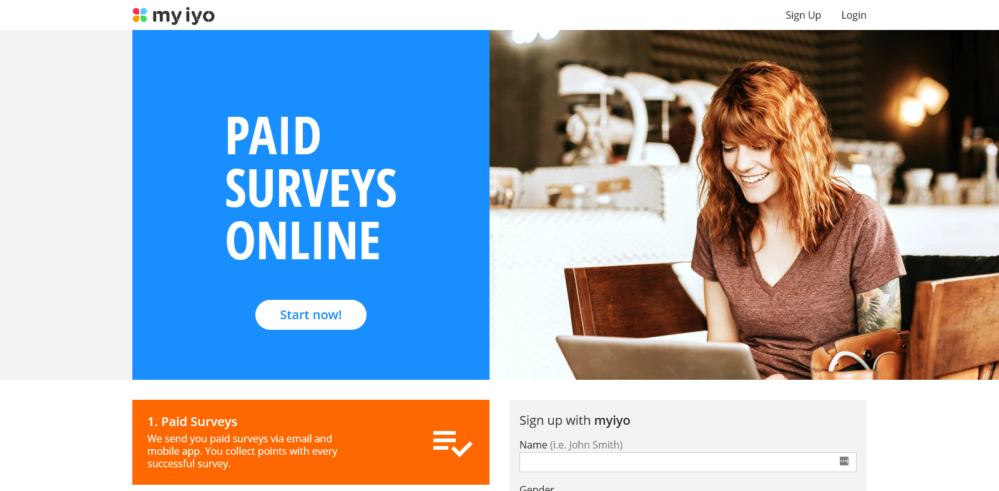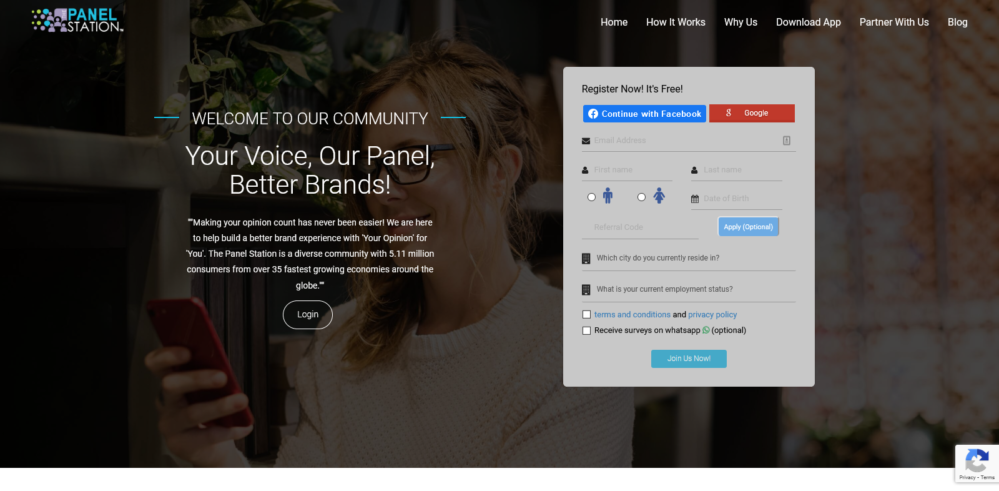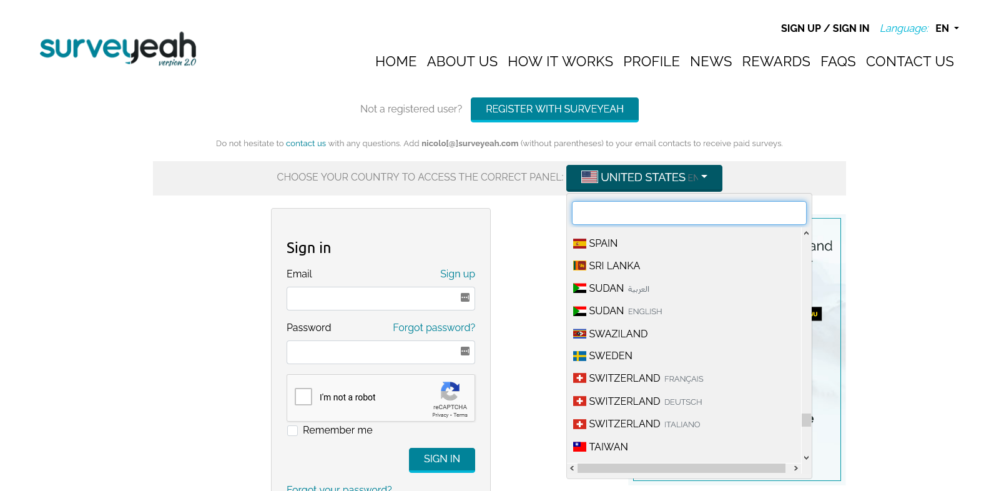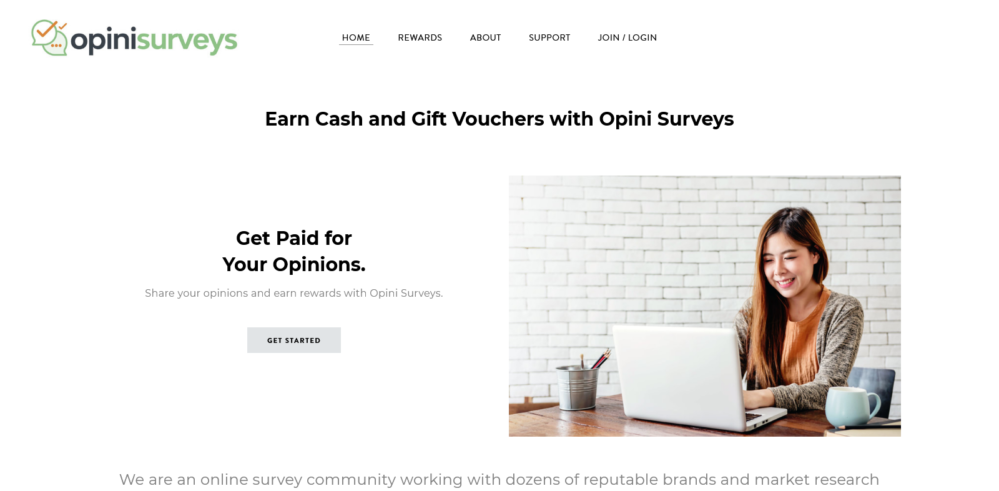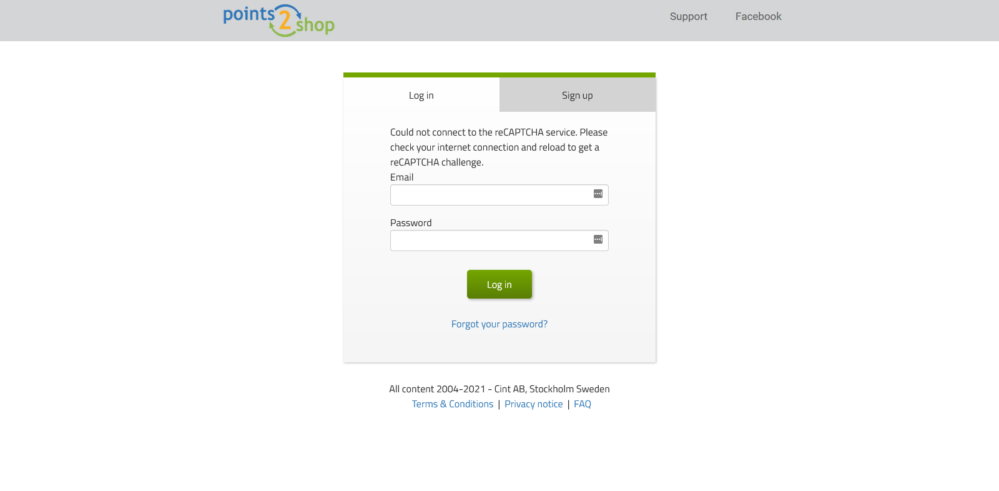

R30 - R250 per hour

PayPal Credits

Gift Cards

Prepaid cards
Top Ranked Survey Sites in South Africa 2024
Howzit! Welcome to our reviews of paid survey sites available in South Africa! If you’re keen to start earning some extra bucks from the comfort of your own digs, you’re in for a lekker ride. We know not all survey sites are cut from the same cloth, which is why we’ve done the hard yards for you. Let’s dive in and discover the top survey sites that are worth your time and effort:
- Review Score (High - Low)
- Review Score (Low - High)
- Site Name (A-Z)
- Latest Reviews
- Rewards
- All categories
- AliPay
- Amazon
- Bank transfer
- Check
- Crypto
- Gift Cards
- Loyalty points
- No rewards
- Openforce
- Payoneer
- PayPal
- Prepaid debit card
- Products
- Skrill
- Vimeo
- WeChat Pay
- Wise
Popular paid survey sites in South Africa
In the vibrant realm of online survey sites in South Africa, several prominent platforms have gained recognition for their engaging opportunities and user-centric approach. Platforms such as LifePoints, Panel Station, Global Test Market, PrizeRebel, SurveySavvy, Toluna South Africa, Cinchbucks, and Paid Viewpoint stand as prime examples of the diverse landscape available to South African survey takers.
Each of these platforms offers a unique blend of surveys, varying reward structures, and interactive features that cater to the preferences and aspirations of individuals seeking to share their insights while earning rewards. Whether it’s through LifePoints’ diverse range of surveys or PrizeRebel’s user-friendly interface, these platforms collectively contribute to shaping the dynamic market research landscape in South Africa.
Popular reward options
Here are some of the most popular reward options when it comes to taking paid surveys in South Africa:
- Cash: Some examples of popular e-wallets in South Africa are PayPal, Masterpass and SnapScan
- Cardies: This is a store that sells greeting cards, stationery, gifts and accessories. You can buy a Cardies gift card online or in-store and use it at any of their outlets across the country. A Cardies gift card is valid for 36 months from the date of purchase.
- CNA: This is a retailer that offers books, magazines, stationery, electronics, toys and games. You can buy a CNA gift card online or in-store and use it at any of their branches nationwide. A CNA gift card is valid for 36 months from the date of activation.
- Gift Bucks gift cards: These are reloadable shopping cards that can be used anywhere in South Africa. They can be ordered online and paid by credit card, debit card or EFT. They have no transaction fees, monthly deductions or management fees. They can be used for personal or business gifting needs.
- Standard Bank prepaid gift cards: These are prepaid debit cards that can be used wherever Visa and MasterCard cards are accepted. They can be loaded with any amount between R 50 and R 5 000. They can be bought and loaded at any major shopping centre in South Africa. They require a valid South African ID when loading a card.
- Amazon gift cards: These are digital or physical gift cards that can be used to buy products from Amazon.com. They can be bought online or at selected retailers in South Africa. They can be loaded with any amount between R 15 and R 5 000. They can be redeemed online by entering the code on the card.

Examples of South African reward options offered by Englighten Panel.
What is the minimum age for taking surveys in South Africa?
According to the Protection of Personal Information Act (POPIA), which came into effect on 1 July 2021, the minimum age for consent to process personal information is 18 years. However, this does not mean that minors under 18 cannot take surveys at all. They can still participate in surveys with the consent of their parent or guardian, or if the survey is for a legitimate purpose and does not pose a risk to their privacy or well-being.
The South African market research landscape
The market research industry in South Africa is a dynamic and diverse sector that provides valuable insights and solutions for various businesses and organisations. According to Euromonitor, the market research industry in South Africa covers a wide range of topics, such as tobacco, footwear, sunglasses, fragrances, hypermarkets, concentrates and microwaves.
Some of the leading market research agencies in South Africa include KLA, which offers full-service market research solutions for clients’ challenges, and Bureau of Market Research (Pty) Ltd (BMR), which operates as an independent market research entity within the University of South Africa (Unisa) Corporate Group structure and focuses on demographic, economic, business, household wealth, behavioural, communication, youth and consumer neuroscience research.
How is online market research conducted in South Africa?
Conducting market research through online surveys in South Africa can be particularly interesting and challenging due to its diverse population, which encompasses a wide range of ethnicities, languages, cultures, and socioeconomic backgrounds. Here are some factors to consider when conducting market research in South Africa:
Cultural Diversity: South Africa is often referred to as the “Rainbow Nation” due to its diverse mix of cultures, including indigenous African, European, Asian, and other ethnicities. This diversity means that consumer preferences, behaviors, and attitudes can vary significantly among different cultural groups.
Language Diversity: South Africa has 11 official languages, with English being the most commonly spoken in business and urban areas. However, for effective market research, it’s important to consider using multiple languages for surveys, focus groups, and other data collection methods to reach a broader audience.
Urban-Rural Divide: There’s a significant urban-rural divide in South Africa, with distinct differences in consumer behaviors and preferences between urban and rural areas. Urban centers are more developed and have greater access to modern amenities, while rural areas may have different needs and purchasing patterns.
Socioeconomic Disparities: South Africa has significant socioeconomic disparities, which can impact consumer behavior and purchasing power. The market research should consider the different income levels and economic backgrounds when analyzing data and forming strategies.
Historical and Socio-Political Factors: The country’s history of apartheid and its ongoing social and political challenges can influence consumer attitudes and behaviors. Sensitivity to these factors is essential when designing research and interpreting results.
Localizing Research: To effectively reach different cultural groups, it’s crucial to tailor research materials to resonate with local preferences and norms. This includes using culturally relevant images, language, and messaging.
Segmentation: Due to the diversity, segmentation is key. Consider segmenting your target audience based on cultural, linguistic, and socioeconomic factors. This can provide insights into more specific consumer behaviors and preferences.
Fieldwork Challenges: Conducting fieldwork in South Africa might require partnerships with local research agencies or experts who understand the cultural nuances and can navigate potential challenges.
Technology Access: While urban areas have good technology access, rural areas might have limited internet and mobile connectivity. This should be considered when designing online surveys and digital research methods.
Ethical Considerations: Due to the country’s history and sensitivities around certain topics, it’s crucial to approach research ethically and responsibly, respecting the cultural and historical context.
Customizing Research Approaches: Qualitative research methods like focus groups and in-depth interviews can provide deeper insights into cultural nuances and consumer motivations.
Collaboration and Consultation: Collaborating with local experts, researchers, and community leaders can enhance the authenticity and effectiveness of your market research efforts.
The South African Market Research Association (SAMRA)
The South African Market Research Association (SAMRA) stands as a pivotal institution in the dynamic world of market research within the nation. With an unwavering commitment to excellence, SAMRA plays a crucial role in fostering a community of professionals dedicated to understanding consumer behaviours, market trends, and societal dynamics. As a unifying force, SAMRA not only promotes best practices and ethical standards but also serves as a platform for knowledge exchange and skill enhancement.
By bridging the gap between academia, industry practitioners, and businesses, SAMRA contributes significantly to elevating the quality and effectiveness of market research endeavours in South Africa. Through its various initiatives, events, and resources, SAMRA continues to shape the landscape of market research, ensuring that insights are not only accurate but also ethically and strategically collected through online survey sites.
How SAMRA protects the interests of survey takers in South Africa
SAMRA not only focuses on the interests of market research professionals and businesses but also takes measures to safeguard the interests of online survey takers in South Africa. Here are a couple of examples demonstrating how SAMRA protects the rights and interests of participants in online surveys:
Ethical Guidelines and Consent: SAMRA establishes and promotes ethical guidelines for conducting market research, which includes obtaining informed consent from survey participants. This ensures that individuals taking part in surveys are fully aware of the purpose of the research, how their data will be used, and any potential incentives or rewards they might receive. By enforcing these ethical standards, SAMRA ensures that survey takers are treated with respect and transparency, and their privacy is upheld throughout the research process.
Data Privacy and Protection: SAMRA places a strong emphasis on data privacy and protection, aligning with global best practices and local regulations. This includes ensuring that survey responses are anonymized and aggregated to prevent the identification of individual participants. By doing so, SAMRA safeguards survey takers’ personal information and ensures that their opinions and data are used in a manner that respects their privacy and confidentiality.
Quality Assurance: SAMRA encourages its member organizations to uphold high-quality standards in survey design and implementation. This indirectly benefits survey takers by ensuring that the surveys they participate in are well-structured, relevant, and provide valuable insights to both researchers and the participants themselves. High-quality surveys enhance the overall survey-taking experience and contribute to the credibility of the market research industry.
Transparency in Incentives: SAMRA promotes transparency in the reward and incentive structures offered to survey participants. This means that survey takers can expect to receive fair and consistent compensation for their time and input. By advocating for clear and transparent incentive practices, SAMRA helps prevent any potential exploitation of survey participants and ensures that they are fairly compensated for their contributions.
How is my personal data protected in South Africa?
Data privacy is a fundamental human right that is recognized and protected by various laws and regulations around the world. In South Africa, the Protection of Personal Information Act (POPIA) is the main law that governs the collection, processing and protection of personal information through paid survey sites. POPIA was enacted in 2013 and came into full effect in July 2021. POPIA is largely based on the EU Data Protection Directive 1995, which was replaced by the General Data Protection Regulation (GDPR) in 2018.
The act has eight principles that guide the lawful processing of personal information. These are:
- Accountability: The responsible party must ensure compliance with the act and its conditions.
- Processing limitation: The processing of personal information must be lawful, reasonable, and minimal.
- Purpose specification: The personal information must be collected for a specific, explicitly defined, and legitimate purpose, and not retained longer than necessary.
- Further processing limitation: The further processing of personal information must be compatible with the original purpose of collection.
- Information quality: The responsible party must ensure the accuracy, completeness, and currency of the personal information.
- Openness: The responsible party must notify the data subject and the Information Regulator of the processing of personal information, and maintain records of such processing.
- Security safeguards: The responsible party must secure the integrity and confidentiality of the personal information against loss, damage, or unauthorized access.
- Data subject participation: The data subject has the right to access, correct, delete, or object to the processing of their personal information.
How can I make a complaint about data privacy issues in South Africa?
Data subjects can complain to the Information Regulator if their personal information is breached. The complaint must be written and have enough details to identify the data controller and the breach. The Information Regulator will investigate and may order the data controller to do or stop something. The data controller may also face a fine or jail time.
The Information Regulator can be reached by:
– E-mail: [email protected]
– Phone: +27 (0)12 406 4818
– Fax: +27 (0)86 500 3351
– Post: P.O Box 31533, Braamfontein, Johannesburg, 2017



